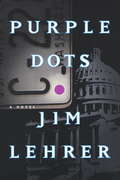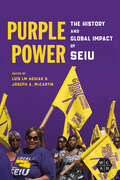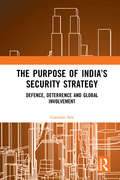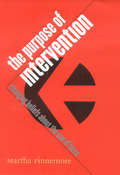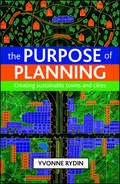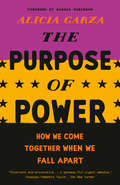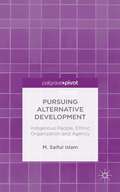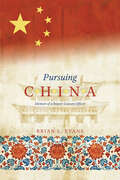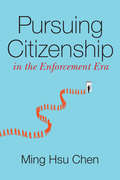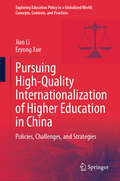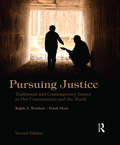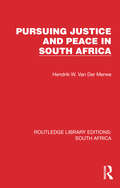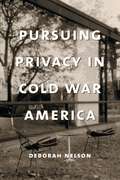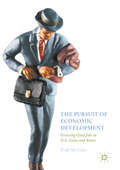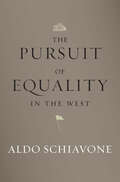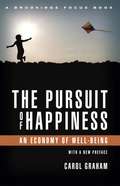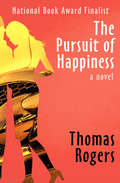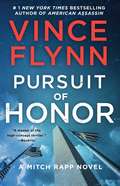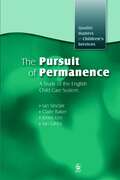- Table View
- List View
Purple Dots
by Jim LehrerWashington, D.C., is a town full of powerful people with powerful, often conflicting agendas, and no one knows this better than Jim Lehrer, the preeminent capital newscaster and novelist. His new book is a witty, provocative political mystery about power play and favor swapping at the highest levels of government, written with his own unique blend of political savvy and irreverent humor. Joshua Bennett has just been nominated by the president to be the new director of the CIA. He's the ideal candidate, and everyone agrees his confirmation hearing should be a mere formality. But this is Washington, where nothing as straightforward as choosing the most qualified person for a crucial job can be counted upon. Unfortunately for Bennett, someone's political agenda hinges on his confirmation being vetoed, but he's damned if he can find out whose. In need of good covert help he can trust, Bennett turns to a little known but highly efficient cadre of former CIA spies living in semiretirement in nearby West Virginia. This odd team of sixty-plus-year-old spooks, boasting a combined array of exceptional if eccentric and largely illegal talents, embarks upon a wildly unorthodox Washington power struggle that is no less earnest for being conducted in absolute secrecy. And most secret of all is the highly coveted purple dot--the ultimate national perk. Following the enormous breakout success of Lehrer's bestselling previous novel, White Widow, Purple Dots will fascinate and amuse even more readers, while confirming their worst fears about how our government really operates.
Purple Power: The History and Global Impact of SEIU (Working Class in American History)
by Luís Lm Aguiar Adrienne E Eaton Janice Fine Euan Gibb Laurence Hamel-Roy Tashlin Lakhani Joseph A. McCartin Yanick Noiseux Benjamin L Peterson Allison Porter Alyssa May Kuchinski Maite Tapia Veronica Terriquez Kyoung-Hee YuChartered in 1921, the Service Employees International Union (SEIU) is a worldwide organization that represents more than two million workers in occupations from healthcare and government service to custodians and taxi drivers. Women form more than half the membership while people in minority groups make up approximately forty percent. Luís LM Aguiar and Joseph A. McCartin edit essays on one of contemporary labor’s bedrock organizations. The contributors explore key episodes, themes, and features in the union’s recent history and evaluate SEIU as a union with global aspirations and impact. The first section traces the SEIU’s growth in the last and current centuries. The second section offers in-depth studies of key campaigns in the United States, including the Justice for Janitors and Fight for $15 movements. The third section focuses on the SEIU’s work representing low-wage workers in Canada, Australia, Europe, and Brazil. An interview with Justice for Janitors architect Stephen Lerner rounds out the volume. Contributors: Luís LM Aguiar, Adrienne E. Eaton, Janice Fine, Euan Gibb, Laurence Hamel-Roy, Tashlin Lakhani, Joseph A. McCartin, Yanick Noiseux, Benjamin L. Peterson, Allison Porter, Alyssa May Kuchinski, Maite Tapia, Veronica Terriquez, and Kyoung-Hee Yu
The Purpose of India’s Security Strategy: Defence, Deterrence and Global Involvement
by Gautam SenThis book comprises the journey of the Indian nation state and its tryst with destiny, where successive political leaderships, while governing India, contributed to a better understanding of the idea of India, its political and strategic culture, and the role that its military has had to play to develop that culture. Hence, the journey has been from the backwaters of ‘defensive defence’ to create a credible deterrence capacity as well as a doctrine to implement the same through political will and enter the domain of global involvement in the strategic, non-strategic as well as non-traditional areas of security. Thus, the title of the book The Purpose of India’s Security Strategy: Defence, Deterrence and Global Involvement. It is hoped that this book will serve as a referral document to understand the polemics of the development of a strategic culture in India for an era which will be dominated by the information age and artificial intelligence, without forgetting that the Indian political leadership has come of age to understand the role of the military in the process of nation building.
The Purpose of Intervention: Changing Beliefs about the Use of Force (Cornell Studies in Security Affairs)
by Martha FinnemoreViolence or the potential for violence is a fact of human existence. Many societies, including our own, reward martial success or skill at arms. The ways in which members of a particular society use force reveal a great deal about the nature of authority within the group and about its members' priorities. Martha Finnemore uses one type of force, military intervention, as a window onto the shifting character of international society. She examines the changes, over the past 400 years, in why countries intervene militarily as well as in the ways they have intervened. It is not the fact of intervention that has altered, she says, but rather the reasons for and meaning behind intervention-the conventional understanding of the purposes for which states can and should use force. Finnemore looks at three types of intervention: collecting debts, addressing humanitarian crises, and acting against states perceived as threats to international peace. In all three, she finds that what is now considered "obvious" was vigorously contested or even rejected by people in earlier periods for well-articulated and logical reasons. A broad historical perspective allows her to explicate long-term trends: the steady erosion of force's normative value in international politics, the growing influence of equality norms in many aspects of global political life, and the increasing importance of law in intervention practices.
The purpose of planning: Creating sustainable towns and cities
by Yvonne RydinPlanning is never far from the top of the policy or media agenda, whether this concerns 'garden-grabbing', the location of wind farms or protests about travellers' sites. The operation of the planning system raises strong views, even passions, and is highly political. Planners have to engage with developers working on multi-million pound schemes and the local communities that will be affected by such schemes. And throughout, they have to work in the public interest, delivering on broad policy goals and meeting the needs of vulnerable communities. This book is about the way that the planning system works, what it can do, what it cannot do and how it should evolve to meet the challenges of the 21st century. It looks at a range of issues to unlock the purpose of planning by being positive about the role of planning while remaining realistic about its achievements and potential. Written in a clear and accessible manner, this book will be essential reading for students studying planning in a variety of disciplines and practitioners engaging with the planning system.
The Purpose of Power: How We Come Together When We Fall Apart
by Alicia GarzaAn essential guide to building transformative movements to address the challenges of our time, from one of the country&’s leading organizers and a co-creator of Black Lives Matter In 2013, Alicia Garza wrote what she called &“a love letter to Black people&” on Facebook, in the aftermath of the acquittal of the man who murdered seventeen-year-old Trayvon Martin. Garza wrote: Black people. I love you. I love us. Our lives matter. With the speed and networking capacities of social media, #BlackLivesMatter became the hashtag heard &’round the world. But Garza knew even then that hashtags don&’t start movements—people do. Long before #BlackLivesMatter became a rallying cry for this generation, Garza had spent the better part of two decades learning and unlearning some hard lessons about organizing. The lessons she offers are different from the &“rules for radicals&” that animated earlier generations of activists, and diverge from the charismatic, patriarchal model of the American civil rights movement. She reflects instead on how making room amongst the woke for those who are still awakening can inspire and activate more people to fight for the world we all deserve. This is the story of one woman&’s lessons through years of bringing people together to create change. Most of all, it is a new paradigm for change for a new generation of changemakers, from the mind and heart behind one of the most important movements of our time.
A Purposeful Life: What I’ve Learned About Breaking Barriers and Inspiring Change
by Dawn Butler'Dawn Butler is a history-making, game-changing, ceiling-smashing politician.This powerful book offers a fascinating insight into both the personal and political sides of her journey.'Sadiq Khan, Mayor of London'When I was younger my parents taught me to be resilient and my brothers told me to be resistant, and now I think it's time for a revolution. Let's complete the power of three.'The third Black woman ever to be elected as an MP, Dawn Butler is a pioneer who speaks truth to power. Famously ejected from the House of Commons for calling Boris Johnson a liar, Dawn’s sense of purpose has carried her over countless hurdles to help her stand up for what is right and influence transformation, from the Met Police to the NHS.Now, for the first time she recalls the pivotal moments in her life, to give others the courage and conviction to dream big and improve the world around them. Revealing how traditional routes to success and power are outdated, Dawn’s story shows that by celebrating the strength of diverse communities, looking at an issue from all angles and embracing intersectionality, it’s easier than we think to disrupt a broken system.This uplifting and hopeful read shows how anybody can make positive change, even when the world around us feels fractured beyond repair.
Pursuing Alternative Development: Indigenous People, Ethnic Organization and Agency
by M. Saiful IslamPursuing Alternative Development.
Pursuing China: Memoir of a Beaver Liaison Officer
by Brian L. EvansA memoir of one academic’s lifelong fascination with China, examining China’s history as well as its relationship with Canada.Brian Evans blends memoir and history to draw a vivid picture of China and its cultural outreach over the past three decades. His historical and sociological insights as student, scholar, and administrator form an authentic commentary as he discusses China and the Cold War; the Cultural Revolution; the post-Mao transformation of China; Canada’s relations with China; the cultural impact of the overseas Chinese community on the Canadian Prairies; development of China studies in Canada and elsewhere; the current impact of China on Canadian higher education; and recent Chinese history seen within a broader context. With this book, Evans seeks to make a contribution to the understanding of the nature and wide range of Canada-China relations, an area in which he himself has played a role.Praise for Pursuing China“It’s no dry academic tome. Instead, Evans mixes his analysis of China’s history and geopolitics with raucous yarns, recounting his personal adventures and misadventures, at home and abroad.” —Paula Simons, Edmonton Journal“As a memoirist, Evans has two great strengths. The first is his sense of humour, which brings us several wonderful anecdotes. . . . Evans’ second strength is his unflinching honesty.” —Diana Lary, Pacific Affairs, Vol. 85, No. 4“[Evans’] book makes compelling reading.” —George Fetherling, Diplomat and International Canada, Summer 2012
Pursuing China: Memoir of a Beaver Liaison Officer
by Brian L. EvansA memoir of one academic’s lifelong fascination with China, examining China’s history as well as its relationship with Canada.Brian Evans blends memoir and history to draw a vivid picture of China and its cultural outreach over the past three decades. His historical and sociological insights as student, scholar, and administrator form an authentic commentary as he discusses China and the Cold War; the Cultural Revolution; the post-Mao transformation of China; Canada’s relations with China; the cultural impact of the overseas Chinese community on the Canadian Prairies; development of China studies in Canada and elsewhere; the current impact of China on Canadian higher education; and recent Chinese history seen within a broader context. With this book, Evans seeks to make a contribution to the understanding of the nature and wide range of Canada-China relations, an area in which he himself has played a role.Praise for Pursuing China“It’s no dry academic tome. Instead, Evans mixes his analysis of China’s history and geopolitics with raucous yarns, recounting his personal adventures and misadventures, at home and abroad.” —Paula Simons, Edmonton Journal“As a memoirist, Evans has two great strengths. The first is his sense of humour, which brings us several wonderful anecdotes. . . . Evans’ second strength is his unflinching honesty.” —Diana Lary, Pacific Affairs, Vol. 85, No. 4“[Evans’] book makes compelling reading.” —George Fetherling, Diplomat and International Canada, Summer 2012
Pursuing Citizenship in the Enforcement Era
by Ming Hsu ChenPursuing Citizenship in the Enforcement Era provides readers with the everyday perspectives of immigrants on what it is like to try to integrate into American society during a time when immigration policy is focused on enforcement and exclusion. The law says that everyone who is not a citizen is an alien. But the social reality is more complicated. Ming Hsu Chen argues that the citizen/alien binary should instead be reframed as a spectrum of citizenship, a concept that emphasizes continuities between the otherwise distinct experiences of membership and belonging for immigrants seeking to become citizens. To understand citizenship from the perspective of noncitizens, this book utilizes interviews with more than one-hundred immigrants of varying legal statuses about their attempts to integrate economically, socially, politically, and legally during a modern era of intense immigration enforcement. Studying the experiences of green card holders, refugees, military service members, temporary workers, international students, and undocumented immigrants uncovers the common plight that underlies their distinctions: limited legal status breeds a sense of citizenship insecurity for all immigrants that inhibits their full integration into society. Bringing together theories of citizenship with empirical data on integration and analysis of contemporary policy, Chen builds a case that formal citizenship status matters more than ever during times of enforcement and argues for constructing pathways to citizenship that enhance both formal and substantive equality of immigrants.
Pursuing Effective Multilateralism
by Robert KissackDoes EU participation in the multilateral system lead to the goal of effective multilateralism? This book examines 8 multilateral organizations, showing how EU policies harm the organizations they mean to help. The multilateral system is too heterogeneous for a one-size-fits-all approach; we must understand multilateralism working in practice.
Pursuing Excellence in Healthcare: Preserving America's Academic Medical Centers
by Arthur M. FeldmanMuch as it is with the nation‘s overall healthcare system, the survival of academic medical centers (AMC‘s) is threatened by a combination of economic, cultural, and demographic factors. If AMC‘s are to survive to fill their societal responsibilities, they must adopt a new philosophy. Challenging assumptions and providing the shift in perspective t
Pursuing High-Quality Internationalization of Higher Education in China: Policies, Challenges, and Strategies (Exploring Education Policy in a Globalized World: Concepts, Contexts, and Practices)
by Jian Li Eryong XueThis book comprehensively explores the internationalization of higher education in China from the aspects of both challenges and strategies. It analyzes the current educational policies of internationalization in China's higher education, such as the educational policies in running international schools, the educational policies of intercollegiate international exchange, the educational policies of Chinese-Foreign cooperatively run schools, and the educational policies of foreign teachers' professional development. Additionally, this book proposes specific suggestions to address the various problems of internationalization in China’s higher education.
Pursuing Justice: Traditional and Contemporary Issues in Our Communities and the World
by Frank Morn Ralph A. WeisheitPursuing Justice, Second Edition, examines the issue of justice by considering the origins of the idea, formal systems of justice, current global issues of justice, and ways in which justice might be achieved by individuals, organizations, and the global community. Part 1 demonstrates how the idea of justice has emerged over time, starting with religion and philosophy, then moving to the justice as a concern of the state, and finally to the concept of social justice. Part 2 outlines the very different mechanisms used by various nations for achieving state justice, including systems based on common law, civil law, and Islamic law, with a separate discussion of the US justice system. Part 3 focuses on four contemporary issues of justice: war, genocide, slavery, and the environment. Finally, Part 4 shows how individuals and organizations can go about pursuing justice, and describes the rise of global justice. This updated timely book helps students understand the complexities and nuances of a society's pursuit of justice. It provides students with the foundations of global justice systems, integrating Greek philosophies and major religious perspectives into a justice perspective, and contributes to undergraduate understanding of international justice bodies, NGOs, and institutions. New edition is completely updated and revised to achieve relevance for today's students Covers concepts of justice as well as ideas for pursuing and achieving justice Examines how our modern laws began, and traces their evolution to today's laws Presents concepts and issues in justice studies as well as a comparison of several systems of law Teaching resources include discussion questions and real-world examples
Pursuing Justice and Peace in South Africa (Routledge Library Editions: South Africa #20)
by Hendrik W. van der MerweOriginally published in 1989 and written by a long-time peacemaker who commanded respect from most political camps in South Africa, this book advocated constructive intervention in the South African conflict. It showed the growing element of pragmatic flexibility in the white leadership and argued that this more rational approach, combined with moral reform among the white population, promised reasonable prospects for the constructive accommodation of conflict in South Africa. In 1984 the author arrange the first meetings between government supporters and the ANC in exile in Lusaka, breaking a 24-year deadlock and significantly influencing public opinion in South Africa.
Pursuing Privacy in Cold War America (Gender and Culture Series)
by Deborah NelsonPursuing Privacy in Cold War America explores the relationship between confessional poetry and constitutional privacy doctrine, both of which emerged at the end of the 1950s. While the public declarations of the Supreme Court and the private declamations of the lyric poet may seem unrelated, both express the upheavals in American notions of privacy that marked the Cold War era. Nelson situates the poetry and legal decisions as part of a far wider anxiety about privacy that erupted across the social, cultural, and political spectrum during this period. She explores the panic over the "death of privacy" aroused by broad changes in postwar culture: the growth of suburbia, the advent of television, the popularity of psychoanalysis, the arrival of computer databases, and the spectacles of confession associated with McCarthyism.Examining this interchange between poetry and law at its most intense moments of reflection in the 1960s, '70s, and '80s, Deborah Nelson produces a rhetorical analysis of a privacy concept integral to postwar America's self-definition and to bedrock contradictions in Cold War ideology. Nelson argues that the desire to stabilize privacy in a constitutional right and the movement toward confession in postwar American poetry were not simply manifestations of the anxiety about privacy. Supreme Court justices and confessional poets such as Anne Sexton, Robert Lowell, W. D. Snodgrass, and Sylvia Plath were redefining the nature of privacy itself. Close reading of the poetry alongside the Supreme Court's shifting definitions of privacy in landmark decisions reveals a broader and deeper cultural metaphor at work.
Pursuing Privacy in Cold War America (Gender and Culture Series)
by Deborah NelsonPursuing Privacy in Cold War America explores the relationship between confessional poetry and constitutional privacy doctrine, both of which emerged at the end of the 1950s. While the public declarations of the Supreme Court and the private declamations of the lyric poet may seem unrelated, both express the upheavals in American notions of privacy that marked the Cold War era. Nelson situates the poetry and legal decisions as part of a far wider anxiety about privacy that erupted across the social, cultural, and political spectrum during this period. She explores the panic over the "death of privacy" aroused by broad changes in postwar culture: the growth of suburbia, the advent of television, the popularity of psychoanalysis, the arrival of computer databases, and the spectacles of confession associated with McCarthyism.Examining this interchange between poetry and law at its most intense moments of reflection in the 1960s, '70s, and '80s, Deborah Nelson produces a rhetorical analysis of a privacy concept integral to postwar America's self-definition and to bedrock contradictions in Cold War ideology. Nelson argues that the desire to stabilize privacy in a constitutional right and the movement toward confession in postwar American poetry were not simply manifestations of the anxiety about privacy. Supreme Court justices and confessional poets such as Anne Sexton, Robert Lowell, W. D. Snodgrass, and Sylvia Plath were redefining the nature of privacy itself. Close reading of the poetry alongside the Supreme Court's shifting definitions of privacy in landmark decisions reveals a broader and deeper cultural metaphor at work.
The Pursuit of Economic Development
by Todd M. GabeThis book addresses the challenge of securing high-paying jobs for American workers. It examines the impacts of a wide range of state and local characteristics--such as low taxes, high-skilled workforce, reliance on manufacturing, and even nice weather--on the economic development of U. S. regions. The author provides a detailed account for each factor's impact on the growth of good jobs. The research focuses on U. S. metropolitan areas and states, tracking employment and income change in these regions from 1990 to the near present. While providing numerous best principles for state and regional policy, the author uncovers the keys to supporting high-paying U. S. jobs in an important book that will prove invaluable to elected officials, economic development practitioners, and students interested in the pursuit of economic development.
The Pursuit of Equality in the West
by Aldo SchiavoneOne of the world’s foremost historians of Western political and legal thought proposes a bold new model for thinking about equality at a time when its absence threatens democracies everywhere.How much equality does democracy need to survive? Political thinkers have wrestled with that question for millennia. Aristotle argued that some are born to command and others to obey. Antiphon believed that men, at least, were born equal. Later the Romans upended the debate by asking whether citizens were equals not in ruling but in standing before the law. Aldo Schiavone guides us through these and other historical thickets, from the first democracy to the present day, seeking solutions to the enduring tension between democracy and inequality.Turning from Antiquity to the modern world, Schiavone shows how the American and the French revolutions attempted to settle old debates, introducing a new way of thinking about equality. Both the French revolutionaries and the American colonists sought democracy and equality together, but the European tradition (British Labour, Russian and Eastern European Marxists, and Northern European social democrats) saw formal equality—equality before the law—as a means of obtaining economic equality. The American model, in contrast, adopted formal equality while setting aside the goal of economic equality.The Pursuit of Equality in the West argues that the United States and European models were compatible with industrial-age democracy, but neither suffices in the face of today’s technological revolution. Opposing both atomization and the obsolete myths of the collective, Schiavone thinks equality anew, proposing a model founded on neither individualism nor the erasure of the individual but rather on the universality of the impersonal human, which coexists with the sea of differences that makes each of us unique.
The Pursuit of Happiness
by Carol L. GrahamIn The Pursuit of Happiness, renowned economist Carol Graham explores what we know about the determinants of happiness and clearly presents both the promise and the potential pitfalls of injecting the "economics of happiness" into public policymaking. While the book spotlights the innovative contributions of happiness research to the dismal science, it also raises a cautionary note about the issues that still need to be addressed before policymakers can make best use of them.
The Pursuit of Happiness
by Carol L. GrahamIn The Pursuit of Happiness, renowned economist Carol Graham explores what we know about the determinants of happiness and clearly presents both the promise and the potential pitfalls of injecting the "economics of happiness" into public policymaking. While the book spotlights the innovative contributions of happiness research to the dismal science, it also raises a cautionary note about the issues that still need to be addressed before policymakers can make best use of them.
The Pursuit of Happiness: A Novel
by Thomas RogersFinalist for the National Book Award: A deftly comic novel of family and society set in 1960s Chicago&“Being free with the permission of society is not being free at all,&” says William Popper, the central character in this quietly ironic first novel. William and his girlfriend, Jane, are sensible University of Chicago graduates, happy lovers, children of good families—and self-described anarchists. When William accidentally runs over an elderly woman and is charged with manslaughter, their lives veer unexpectedly off path. As the consequences of William&’s accident compound, the two find themselves butting up against the society they seek to drop out of. This National Book Award–nominated debut still speaks to those who remain idealistic in a cynical world.
Pursuit of Honor: A Novel (A Mitch Rapp Novel #12)
by Vince FlynnMitch Rapp—the &“mainstay of the modern techno-thriller&” (New York Journal of Books)—returns in this exhilarating political thriller as he fights for the sake of his country and the pursuit of honor.Less than a week after a series of deadly explosions devastated Washington, DC, key officials are up in arms over whether to make friends or foes of the clandestine elite counterterrorism operatives that stepped between the enemy and countless American lives. Not for the first time, Mitch Rapp finds himself struggling to illustrate the realities of national security to politicians who are content to sit on the sidelines. Meanwhile, three al-Qaeda terrorists are still at large, and Rapp has been unofficially ordered to find them by any means necessary. No one knows the personal, physical, and emotional sacrifices required of the job better than Rapp. When he sees his colleague Mike Nash cracking under the pressure, he makes a call he hopes will save his friend, assuage the naysayers on Capitol Hill, and get him one step closer to the enemy before it&’s too late. Once again, Rapp proves himself to be a hero unafraid &“to walk the fine line between the moral high ground and violence&” (The Salt Lake Tribune) for our country&’s safety and for the pursuit of honor.
The Pursuit of Permanence: A Study of the English Child Care System
by Claire Baker Ian Sinclair Jenny Lee Ian GibbsChildren in public care complain that they have too many placements. Professionals agree but little is known about the reasons for this instability or how it affects different groups of children. The Pursuit of Permanence explores this core issue for children's services. Based on the largest study of the English care system in recent years, the book examines the children (what they need and what they want), their movements into, out of and within the care system, the nature and quality of their placements and the outcomes (whether the children are settled or happy). It analyses the reasons for movements and outcomes in different groups of children, and the relative impacts of the departments, social work teams and placements. It concludes with suggestions about how the care system should work, what it should offer and how it should be managed and inspected. This detailed, innovative and comprehensive study is essential reading for all professionals and academics involved with fostering, leaving care, adoption and children's services, as well as policy makers and students on social work courses.
